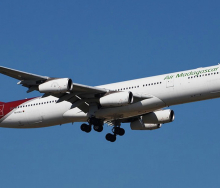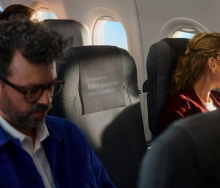Khazanah Nasional Berhad, the majority shareholder in Malaysia Airlines, has announced a 12-point plan it believes will revive the airline and see it return to sustained profitability.
The plan follows a review of Malaysia Airlines’ operations and operating environment that began in February. It involves a comprehensive overhaul of the airline, which Khazanah says will see the airline turning a profit by the end of 2017.
Khazanah says: “At its core, the plan involves the creation of a new company, which will house the ‘New Malaysian Airline System Berhad (MAS)’ and the migration of the right-sized workforce and work practices and contracts into the new company. It also includes details of the strict conditionality attached to restructuring into current MAS and further Khazanah investment into the new company, amounting to up to RM6 billion on a staggered and conditional basis over a three year period.”
In response to the announcement of the plan, Malaysia Airlines released a statement saying there would be no disruption to its current service. “We will continue to fly, honour existing reservations and plan future travel. [The plan] will have no impact on the current fares we offer our customers and corporate accounts nor our membership in the oneworld alliance.”
The 12 key elements of the MAS Recovery Plan over four categories are as follows:
1.) MAS will be delisted by the end of 2014 with the relevant operations, assets and liabilities being migrated to a “new company” by July 2015. The new company will feature a corrected cost and operational structure and workforce and return to profitability within three years of delisting. It will then be relisted within three to five years, i.e. between 2017 and 2019.
2.) Restructuring and investment funding of up to RM6bn.
3.) Reset the operating business model through a more regionally focused network, lower cost structure and greater emphasis on yield management.
4.) Consolidate headquarters and operations from Subang to Kuala Lumpur International Airport.
5.) Strengthening of the assurance, integrity and safety functions.
6.) Review and where appropriate renegotiate supply contracts.
7.) The transition period over the next ten months will see significant changes to leadership. Khazanah is in the process of looking for a ceo for the new MAS.
8.) The workforce will be “right-sized” to around 14 000 employees, which is a reduction of 6 000 or 30% of the current workforce.
9.) Strengthen industrial relations and internal alignment.
10.) Khazanah will invest in a Corporate Reskilling Centre to be located in the Subang area specifically to address the reskilling of the MAS staff who do not migrate to the new company.
11.) Appropriate government support on key initiatives such as the enactment of appropriate enabling legislation to facilitate the restructuring in a comprehensive and timely manner; and the establishment of an Aviation Commission.
12.) Continuous communication and stakeholder engagement.
Malaysia Airlines said it looked forward to playing its role and being part of the effort to ensure that it becomes a profitable and sustainable national carrier.
Malaysia Airlines plans overhaul
04 Sep 2014 - by Chana Boucher
Comments | 0













